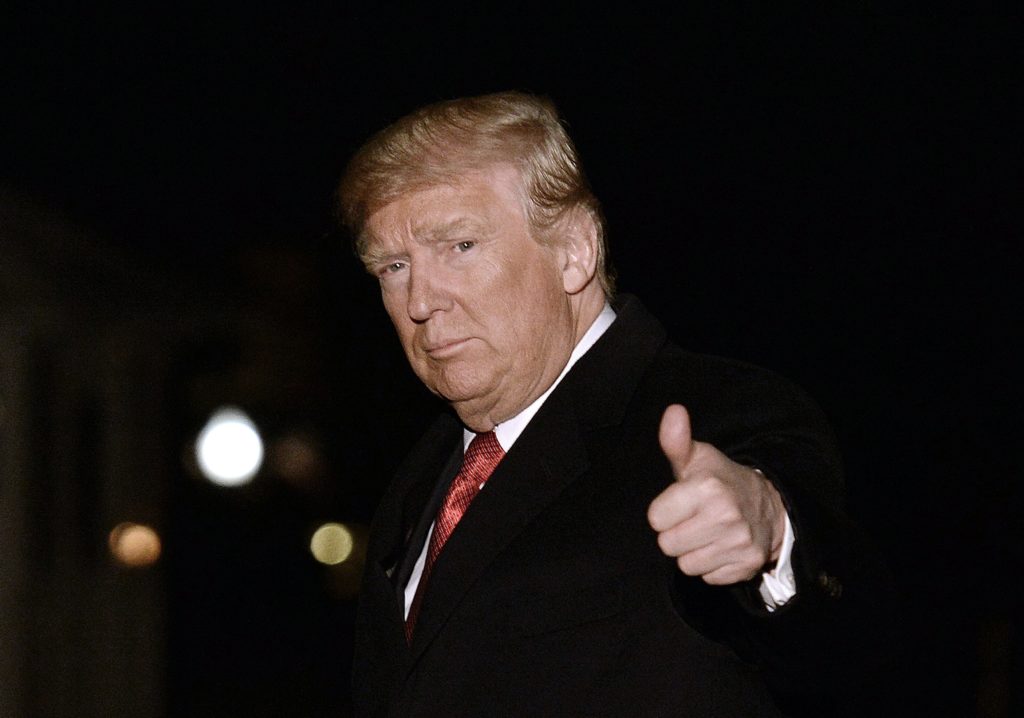Politics
Trump Pledges to End the National Endowment for the Arts and Humanities
He is the first president to do so.

He is the first president to do so.

Caroline Elbaor

In a move many feared was coming, the Trump administration has revealed a proposal to cut the National Endowment for the Arts (NEA) and National Endowment for the Humanities (NEH) in its federal budget plan. Trump is the first president to do so, according to a report by the New York Times.
The elimination of both agencies would total a mere $300 million out of the allotted $1.1 trillion overall annual discretionary spending—a small amount that would still have a serious impact on cultural production, and the artists, musicians, writers, and scholars who rely on it.
In addition to eradicating the NEA and NEH, President Trump’s outline also proposes to abolish the Corporation for Public Broadcasting, a major source of funding for PBS and National Public Radio stations, as well as the Woodrow Wilson International Center for Scholars.
Rumors of the proposed cuts began to float in January, and in February, Senator Kristen Gillibrand teamed up with 24 U.S. senators to write a letter to the president encouraging him to continue funding the NEA and NEH, calling them the “drivers of innovation and economic prosperity.”
Brooke Seipel of the Hill wrote that the official announcement was apparently met with “a mix of sadness and surprise” when NEA Chairwoman Jane Chu notified her staffers Wednesday morning.
“We are greatly saddened to learn of this proposal for elimination, as NEH has made significant contributions to the public good,” NEH chairman William D. Adams said in a statement yesterday.
How soon the changes will be implemented is yet to be seen. The federal budget falls under the purview of Congress, while budget proposals simply reflect the president’s priorities.
Though former Republican President Ronald Reagan toyed with the idea, he faced a Democratic majority in Congress—unlike today, when Republicans have control of both houses of Congress and the White House.
According to the Times, Brian Ferriso, the president of the Association of Art Museum Directors, said, “I’m sort of dumbstruck. I’m hopeful that Congress will take the time to say, ‘Hey, wait a second. We need these cultural elements to our society.’”
The NEA and NEH were created in 1965, when President Lyndon B. Johnson signed the National Foundation on the Arts and the Humanities Act, stating that “it is necessary and appropriate for the Federal Government to help create and sustain not only a climate encouraging freedom of thought, imagination, and inquiry but also the material conditions facilitating the release of this creative talent.”
UPDATE: Jane Chu, head of the NEA, has released the following statement:
Today we learned that the president’s FY 2018 budget blueprint proposes the elimination of the National Endowment for the Arts. We are disappointed because we see our funding actively making a difference with individuals of all ages in thousands of communities, large, small, urban and rural, and in every Congressional District in the nation.
We understand that the president’s budget request is a first step in a very long budget process; as part of that process we are working with the Office of Management and Budget (OMB) to prepare information they have requested. At this time, the NEA continues to operate as usual and will do so until a new budget is enacted by Congress.
We expect this news to be an active topic of discussion among individuals and organizations that advocate for the arts. As a federal government agency, the NEA cannot engage in advocacy, either directly or indirectly. We will, however, continue our practice of educating about the NEA’s vital role in serving our nation’s communities.